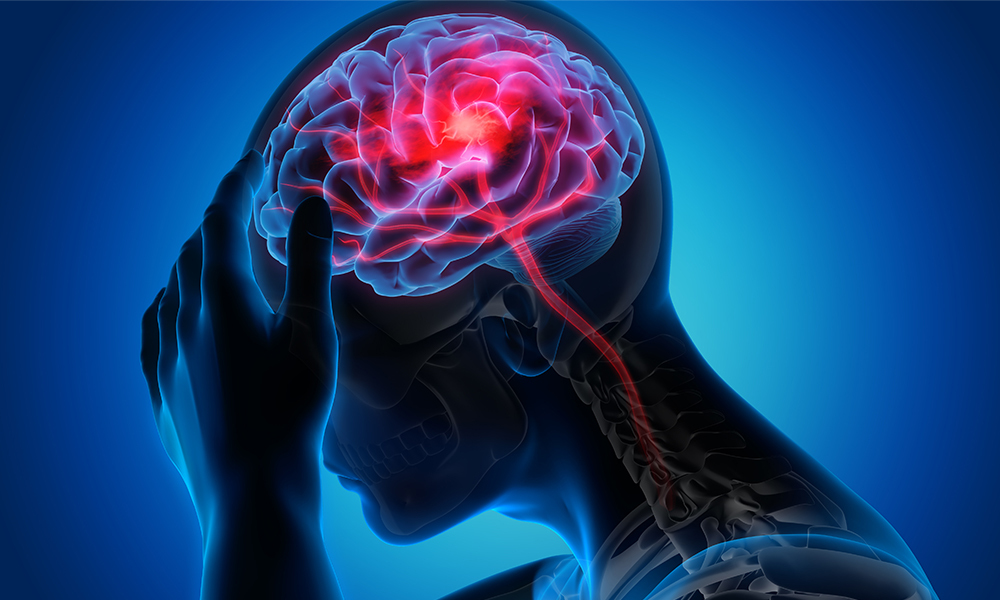Injuries to the head can be fatal. It can range from minor injury to the skull or scalp or can be serious if the brain tissue or the blood vessels in the brain are damaged. There are many different types of head injuries. Traumatic brain injury (TBI) is often a severe type of brain injury. The pain in TBI victims can range from acute to chronic pain. Knowing the type of pain also helps in prognosis and treatment. Thus, pain management plays a crucial role as it helps in defining the treatment plan.
The types of pain in TBI include the following.
- Acute pain
Acute pain usually lasts for less than three months. The corrective measures aid in the treatment of this type of pain. - Chronic pain:
Some TBI injuries are accompanied by chronic pain, which lasts for over three months.
Causes of traumatic brain injury (TBI)
Damage caused to the brain defines the severity of the traumatic brain injury. Different events or accidents cause TBI. These various causes leading to TBI include the following.
- Fall: Fall can include falling from bed, ladder, or any height, falling because of missing a stair, slipping in the bath, or a slippery floor, etc. These are the different reasons for falls that can cause TBI. Falling is common in people of all age groups.
- Vehicular accidents: Road accidents are the common cause of TBI in most reported cases. It includes accidents involving any type of vehicle like bicycle, motorcycle, cars, or heavy vehicle.
- Violence: Acts of violence can also cause traumatic brain injury. These actions include domestic violence, gunshot wounds, assault, abuse, etc. With infants, the shaken baby syndrome is also a type of TBI.
- Sports injury: In some cases, a sports injury is the cause of TBI. The sports that can cause severe head injury include football, soccer, hockey, baseball, boxing, skateboarding, or any other sport that can cause high impact.
- Combat injuries: Certain injuries caused during combat activities like explosive blasts can significantly damage the brain. evere injury may be caused because of shrapnel or debris hitting the head, falling, or collision during the explosion.
Pain management in TBI
There are various techniques followed for the management of chronic pain with TBI patients. These different techniques of pain management include the following.
- Exercising: Exercises involving the body and brain are recommended for patients with TBI. These exercises are based on the condition of the patient and the severity of their injury. Exercising also helps the patient to improve their motor control that is affected by the injury.
- Relieving stress: For management of pain, the patients should relax and avoid stress. Different techniques are suggested for reducing the stress that includes meditation, breathing exercises, listening to music, etc.
- Follow a proper routine: TBI patients should follow a fixed routine. For example; the patient should go to bed and wake up at the same time daily. This also helps the body to relax by maintaining the proper body clock.
- Restricted usage: The TBI patients should avoid using items like caffeine, tobacco, and alcohol.
- Improve mental health: The mental health experts guide the TBI patients in improving their mental state. The primary focus is on reducing their anxiety and stress.
- Eat healthy: TBI patients are suggested to have healthy, nutritious food and avoid food and drinks that trigger headaches.
- Physiotherapy: TBI patients should undergo physiotherapy sessions for pain management. These sessions will help the patient improve their motor skills. It will also help them reduce the disability caused because of the injury.
- Alternate therapies: There are alternate therapies like hydrotherapy, massage therapy, acupuncture, etc., which also helps to improve the physical and mental health of the TBI patient.
- Medication: Different medications are given to the TBI patients for different actions, including pain management. These medications include anti-anxiety drugs, anticoagulants, antidepressants, diuretics, muscle relaxants, etc.
In case of traumatic brain injury, it is essential to get treatment immediately. Considering the different pain management techniques, many TBI patients can get back to their everyday life with steady efforts.


